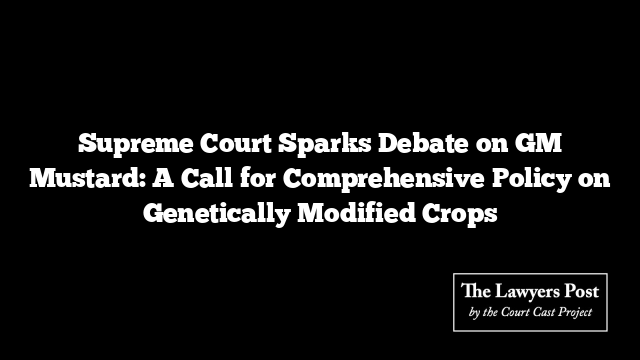In a significant ruling, the Supreme Court addressed the contentious issue of genetically modified (GM) crops, specifically the transgenic mustard hybrid Dhara Mustard Hybrid-11 (DMH-11). The Genetic Engineering Appraisal Committee (GEAC) had conditionally approved DMH-11 for environmental release in 2022, sparking a series of public interest litigations. The Supreme Court bench, consisting of Justices BV Nagarathna and Sanjay Karol, delivered a split verdict on the matter.
Justice Nagarathna criticized the approval process, emphasizing concerns about public access to information, the lack of prior informed consent from farmers and local communities, and potential health and environmental risks. She highlighted that the GEAC failed to provide sufficient transparency and public participation in the decision-making process. Furthermore, she underscored the necessity of a comprehensive National Policy on Genetically Engineered Organisms (GEOs), developed through a multi-stakeholder consultation process.
Justice Karol, on the other hand, supported the GEAC’s decision, rejecting claims of arbitrariness and asserting that the approval process involved extensive documentation and expert input. He emphasized the need for a balanced approach to sustainable development and scientific progress.
The Supreme Court directed the Union Government to develop a National Policy on GM crops, involving all relevant stakeholders, including state governments, agricultural experts, and representatives of farmers. The Ministry of Environment, Forest and Climate Change (MoEF&CC) has been tasked with conducting a national consultation to formulate this policy within four months.
This case underscores the complex and often controversial nature of GM crops in India, highlighting the need for a transparent and inclusive policy-making process that considers public health, environmental sustainability, and socio-economic impacts. The Supreme Court’s directives aim to ensure a comprehensive and informed approach to the future of GM crops in the country.





